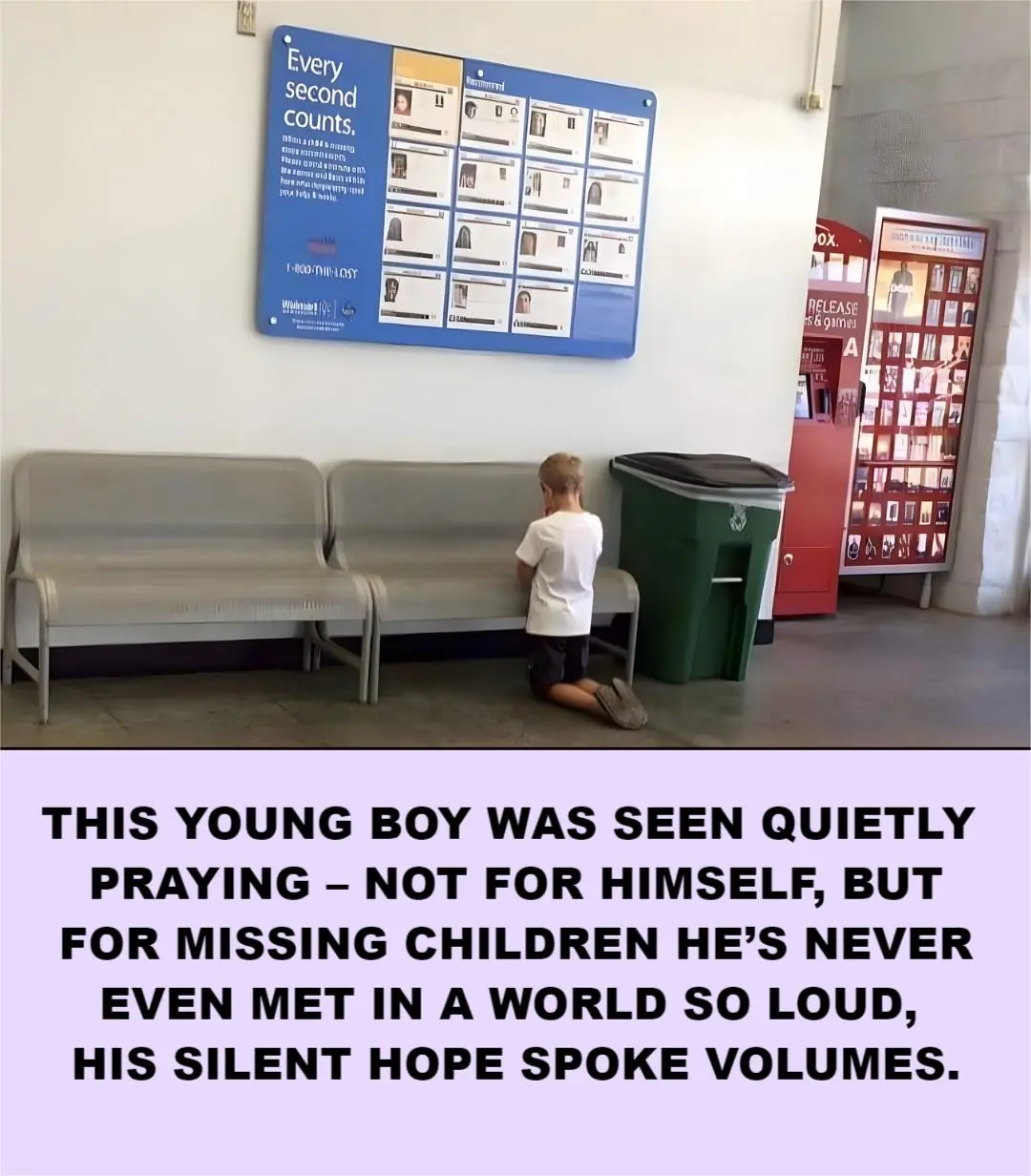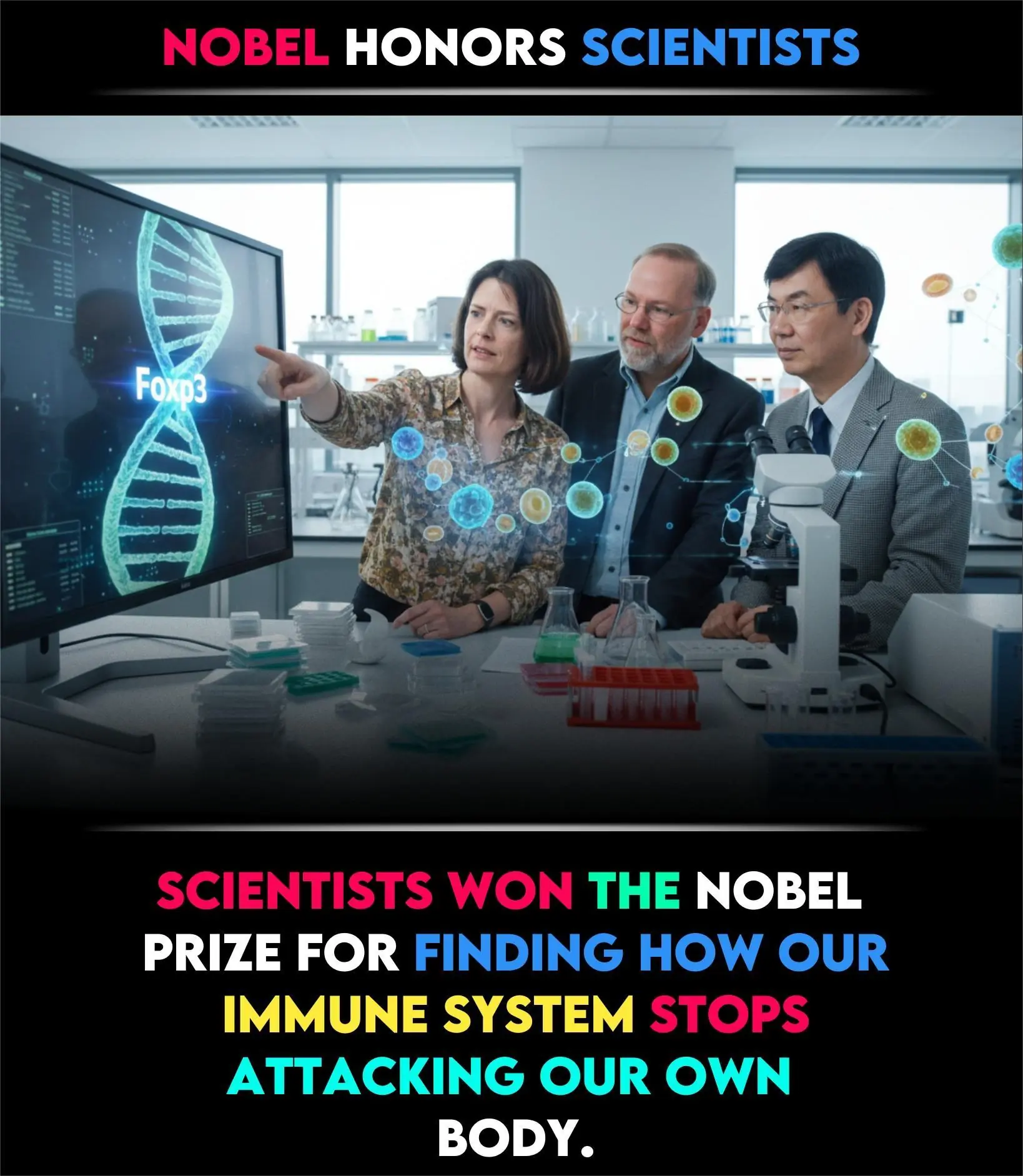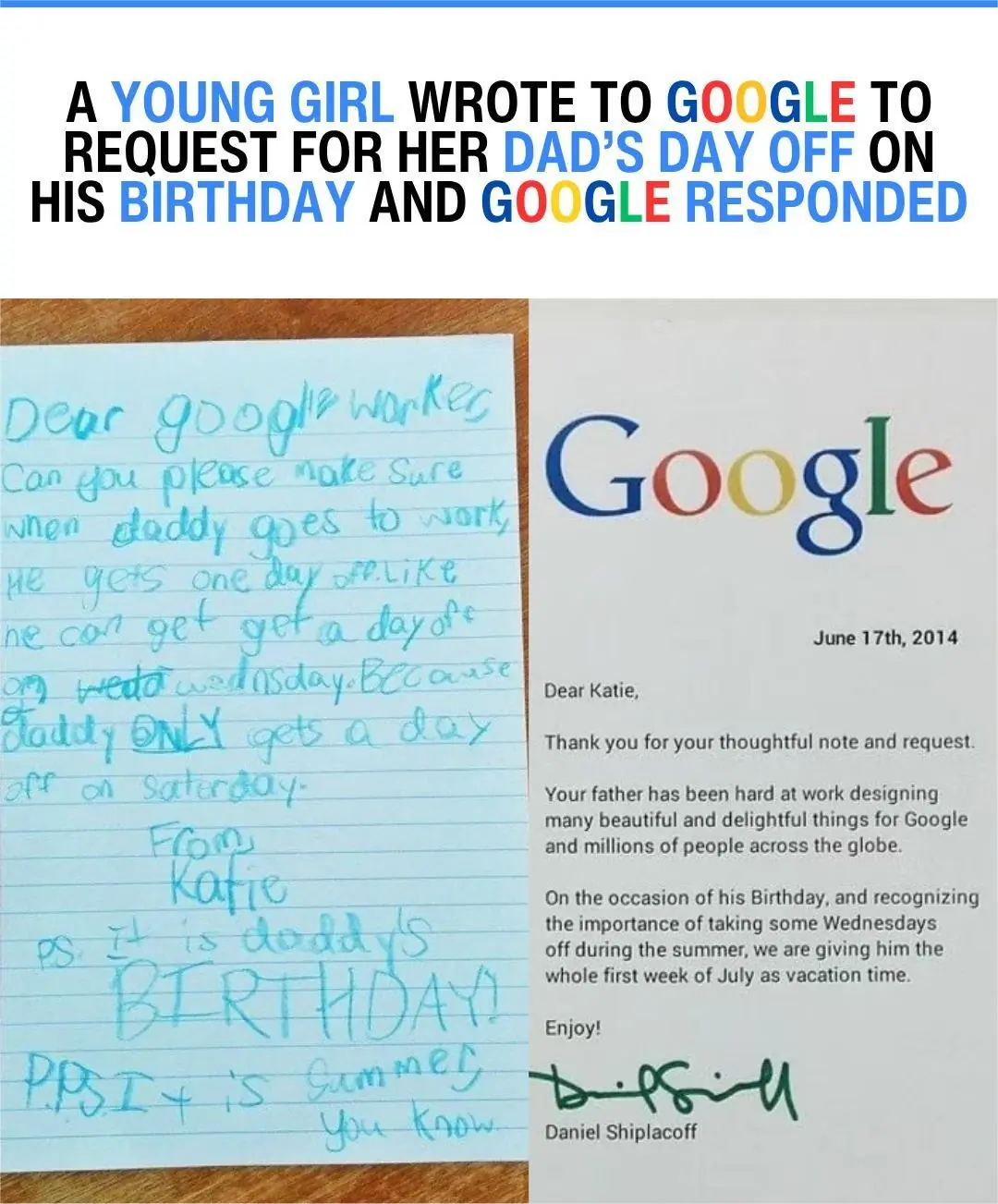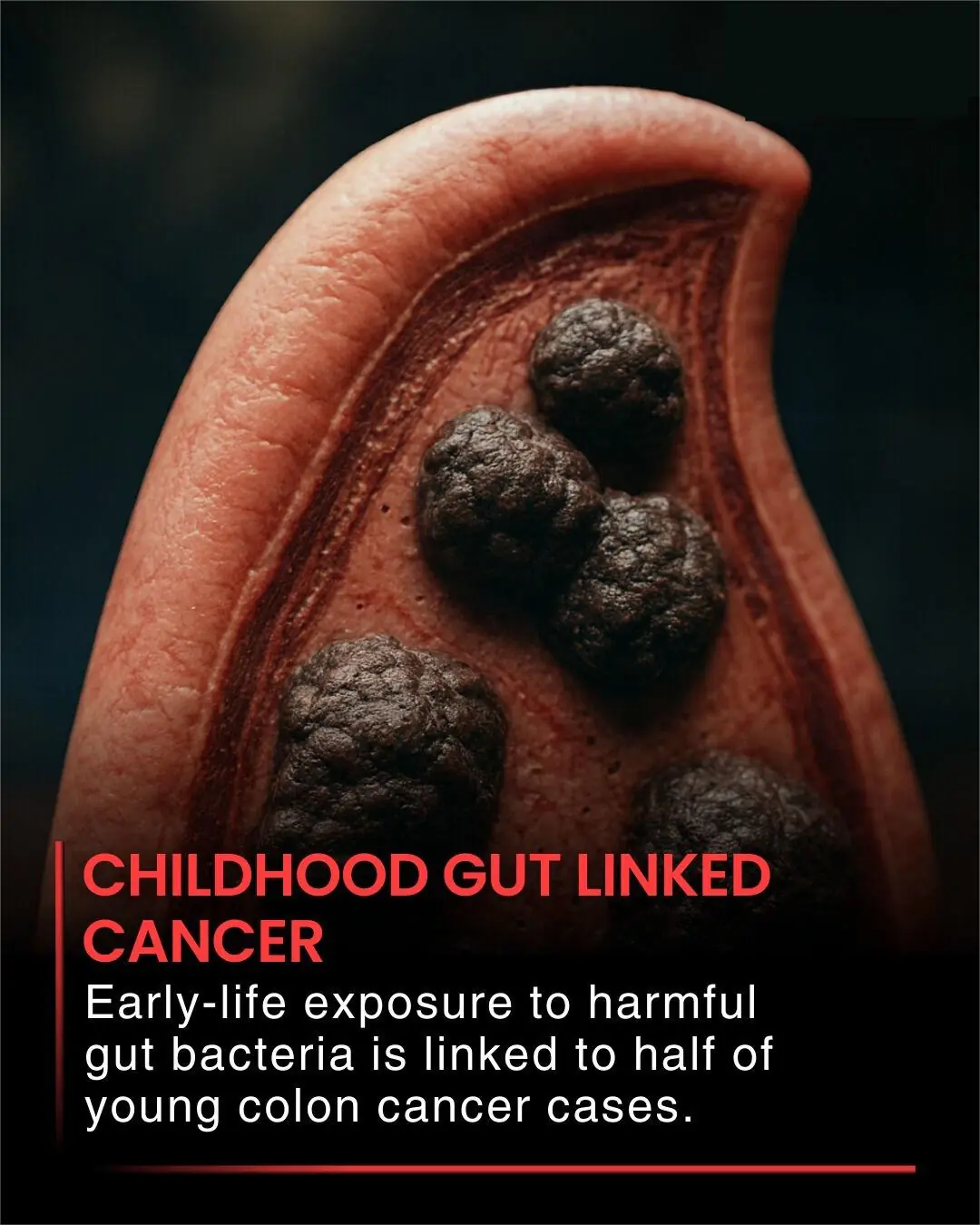
Scientists Trace Rising Early-Onset Colon Cancer to DNA-Damaging Bacterial Toxin
Colorectal cancer, once considered a disease of older adults, is appearing with worrying frequency in people under 55 — and a new genetic study is offering critical clues about why. Researchers have linked a distinctive pattern of DNA damage in many younger patients to colibactin, a potent toxin produced by certain strains of Escherichia coli living in the gut.
Decoding the Mystery Behind a Growing Health Threat
Global cancer registries have reported a steady increase in colorectal cancer cases among younger adults over the past two decades. While lifestyle factors such as diet and sedentary habits have long been suspected, genetic analysis is now revealing a more direct biological trigger.
An international team recently examined nearly 1,000 colorectal tumor genomes collected from patients around the world. They discovered that mutations associated with colibactin exposure are significantly more common in tumors from younger patients — about 3.3 times higher in those diagnosed before age 40 compared with people over 70. Even more striking, these colibactin-related changes appear very early in tumor development, suggesting exposure to the toxin may happen in childhood.
How Colibactin Works
Colibactin is produced by a subset of gut-dwelling E. coli bacteria. The toxin can break DNA strands, leaving behind a unique “signature” pattern of damage that scientists can now detect. While many E. coli strains are harmless or even beneficial, these colibactin-producing types seem capable of permanently altering cells in the intestinal lining, potentially creating a foundation for cancer decades later.
Researchers caution that colibactin exposure is not the only cause of early colorectal cancer — but the genetic fingerprints they’ve identified are a major step forward in understanding its biology.
Early-Life Gut Health May Play a Role
Experts suspect that changes in early childhood — including reduced breastfeeding, increased antibiotic use, more cesarean births, and highly processed diets — may make it easier for harmful E. coli strains to colonize the gut and persist. These are still working theories, but they align with shifts in microbiome patterns observed in modern societies.
If confirmed, it means some children could unknowingly carry a cancer risk factor from an early age, long before routine colorectal screening begins.
New Frontiers in Prevention and Detection
This discovery is sparking hope for next-generation screening tools. Scientists are exploring stool-based tests to spot the DNA damage colibactin leaves behind — a potential way to flag high-risk individuals before cancer develops. Others are studying targeted probiotics or microbiome therapies that might displace or neutralize toxin-producing bacteria.
Though these ideas remain in development, they open the door to preventing colorectal cancer decades before symptoms appear.
A Call to Vigilance
For now, health experts urge people — especially those with family history or digestive symptoms — to be proactive about screening. While the rise in early-onset colorectal cancer is still under investigation, this breakthrough shows how deeply the gut microbiome can shape long-term health.
In revealing one hidden trigger for a deadly disease, researchers have also illuminated a path to intervene earlier and perhaps spare future generations from the surge of colon cancer that doctors are now seeing in young adults.
News in the same category


The Windows 10 Wallpaper That Was Shockingly Real

Olympic Medal Turned Into a Miracle: The Selfless Act of Maria Andrejczyk

A Little Boy’s Silent Prayer That Touched the World

Bullied 7-Year-Old Boy Finds a Kindred Spirit in Cat With the Same Rare Conditions

Single Dad in Thailand Dresses as Mom to Support His Daughter

Man With Facial Disfigurement Asked to Leave Restaurant Before Sitting Down

She Had 43 Cosmetic Procedures To Become A Barbie Doll – Critics Say She Looks Like A ‘Zombie’

She believed it was just an ordinary photo — but zooming in revealed a shocking truth that turned her world upside down

Newly married couple tragically discovered dead in their car just weeks before celebrating their first anniversary

Sleeping Trick? Why Sticking One Foot Out Actually Works

Two best friends died hand in hand in an accident right before prom night

Divorce warning signs you might be ignoring

🌱 UBC Scientists Develop the World’s First Mushroom-Powered Waterless Toilet

Elon Musk: Building a Thriving Mars Colony Means 100,000 People, 1 Million Tons of Cargo and a Mission Beyond Just Arrival

October 21: Rare Green Comet Meets Orionid Meteor Shower in a Double Cosmic Spectacle

Indian Engineers Win Ig Nobel Prize for UV Shoe Rack That Kills Bacteria and Eliminates Odor

Nobel Prize 2025: Breakthrough Discovery Reveals How the Immune System Knows When to Stop Attacking Itself

GE’s Haliade-X: The World’s Most Powerful Wind Turbine Revolutionizing Clean Energy

Google Grants a Special Birthday Wish from a Little Girl
News Post

WHAT HAPPENS WHEN WE TONGUE KISS…See more

Nature’s Secret: 4 Healing Leaves That Support Metabolism, Immunity & Circulation Naturally

Don’t Drink Coconut Water Before You Know These 11 Secrets!

Pumpkin Seed Milk — The Natural Parasite Cleanser

Fast Rice Water Trick for a Brighter Smile

Morning Drink to Revive Your Kidneys Fast

The Onion Recipe That Could Transform Your Blood Sugar, Support Cleaner Arteries, and Protect Your Heart!

Top 4 Fruits That Help Your Kidneys Flush Out Toxins While You Sleep

Ginger, Clove, and Honey: The Natural Trio Your Body Will Thank You For

Heal 15 Years of Joint Pain Naturally with Turmeric and Honey Tea

This Juice Revived My Grandma’s Energy — Say Goodbye to Fatigue and Body Pain with This Natural Recipe

The Benefits of Eating 2 Boiled Eggs Every Morning: Transform Your Health!

If Your Kidneys Are in Danger, Your Body Will Send You These 8 Signals — Don’t Ignore Them

The Surprising Effects of Avocado on Your Heart and Brain

Ways to Get Over a Man Who Didn’t Value You

I’m 66 but Look 36 — My Secret? Aloe Vera & Ginger for Firm, Smooth Skin

How to Make Okra Water to Treat 17 Health Problems Naturally

Banana and Egg Mask to Look Younger Even in Your 80s

Scent Leaf Secrets Unveiled: 10 Surprising Health Benefits of This Miracle Herb

